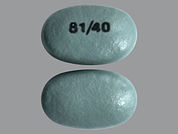Aspirin-Omeprazole
Aspirin/Omeprazole
What is Aspirin-Omeprazole used for?
This combination product contains two medications: aspirin and omeprazole. It is used to reduce the risk of stroke or heart attack in people who have had "mini-strokes" (transient ischemic attacks), or a stroke due to a blood clot, or who have heart disease. This product is used by people who are at risk for developing ulcers while taking aspirin. Aspirin belongs to a class of drugs known as antiplatelets. It has many uses, such as for pain relief or to reduce a fever. In low doses (such as this product), it is used to prevent harmful blood clots that can cause a stroke or heart attack. It works by stopping platelets in your blood from clumping together to form clots. Omeprazole belongs to a class of drugs known as proton pump inhibitors (PPIs). It works by decreasing the amount of acid your stomach makes. This effect helps prevent ulcers and other stomach-related problems (such as heartburn) that can be caused by aspirin. This medication contains a delayed-release form of aspirin. It should not be used to treat conditions that require an immediate-release form of aspirin, such as right after a heart attack or before certain heart procedures (such as percutaneous coronary intervention-PCI). Also, this combination product is not the same as taking aspirin and omeprazole separately.
CHEMICAL NAME
DRUG TYPE
Aspirin-Omeprazole Prices
Searching for the lowest prices
What does Aspirin-Omeprazole look like?
View all Aspirin-Omeprazole Image Information (1)Aspirin-Omeprazole Frequently Asked Questions
Drug interactions may change how your medications work or increase your risk for serious side effects. This document does not contain all possible drug interactions. Keep a list of all the products you use (including prescription/nonprescription drugs and herbal products) and share it with your doctor and pharmacist. Do not start, stop, or change the dosage of any medicines without your doctor's approval.
Some products that may interact with this drug include: corticosteroids (such as prednisone), mavacamten, methotrexate (especially high-dose treatment), mifepristone, ginkgo biloba, other drugs that can cause bleeding/bruising (including antiplatelet drugs such as clopidogrel, ticagrelor, NSAIDs such as ibuprofen/naproxen, "blood thinners" such as warfarin/dabigatran).
Check all prescription and nonprescription medicine labels carefully since many medications contain pain relievers/fever reducers (including aspirin, NSAIDs such as ibuprofen, ketorolac, naproxen). These drugs are similar to this medication and may increase your risk of side effects if taken together. Ask your doctor or pharmacist for more details.
Some products need stomach acid so that the body can absorb them properly. Omeprazole decreases stomach acid, so it may change how well these products work. Some affected products include atazanavir, erlotinib, levoketoconazole, nelfinavir, pazopanib, rilpivirine, sparsentan, certain azole antifungals (itraconazole, ketoconazole, posaconazole), among others.
Other medications can affect the removal of omeprazole from your body, which may affect how this product works. Examples include rifampin, St John's wort, among others.
Omeprazole is very similar to esomeprazole. Do not use any medications containing esomeprazole while using omeprazole.
This medication may interfere with certain lab or medical tests, possibly causing false test results. Make sure lab personnel and all your doctors know you use this drug.
